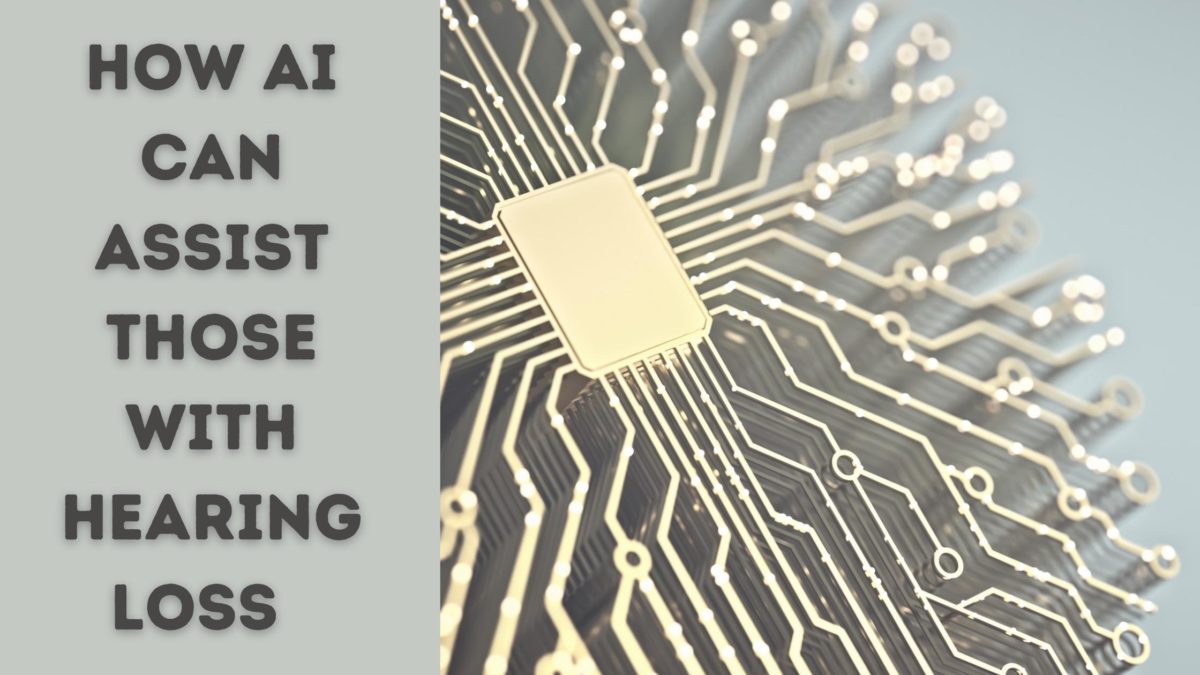When you think of Artificial Intelligence (AI) your mind may go directly to popular books and Hollywood sci-fi films. AI is commonly associated with robots searching for their identity, aiding the protagonist, or even trying to take over the world. However, AI doesn’t always refer to robots. It is actually technology which aids in machine learning. AI can monitor your behavior and patterns and adapt to make your life easier. If you are a hearing aid user, AI in your devices can adapt to different listening environments automatically and learn your listening preferences. This technology is rapidly evolving to make hearing aids more user friendly and adaptable than ever before. Here are just some of the amazing things we can expect from AI in our hearing aids.
What is AI?
Artificial intelligence is defined as the ability of a machine to simulate human intelligence. This constitutes learning and performing tasks that require “intelligent” decisions. They do this by following predetermined rules or program parameters.
“Artificial intelligence is a very broad definition. Machine learning, neural networks, deep learning, and all of those, fall under the AI umbrella,” explains Issa M.S. Panahi, PhD, professor of electrical and computer engineering in the Erik Jonsson School of Engineering and Computer Science at the University of Texas at Dallas.
Machine Learning
Machine learning is the study of computer algorithms which improve by analyzing data and adapting to routines and human behavior. It is under the umbrella of AI. We already use machine learning anytime we pick up our Smartphone or use a search engine. Smartphones learn your preferences to predict where you want to navigate to, what music or media you want to hear and what you may be searching for on your search engine. Machines use algorithms (or a set of rules) to sort through large fields of data to predict behavior and make decisions. This is primarily how hearing aids adapt to your listening preferences as you change from noisy to quiet environments. They use GPS tracking to locate and overtime automatically shift as you return to familiar listening environments.
Deep Neural Network
A deep neural network (DNN) is a form of AI that is set up to mimic the neural habits of the brain. It’s goal is to respond in the manner in which your brain would. It’s used for a variety of tasks. You might be aware of some of these tasks such as with language translation and image search tools. However, UCLA was able to teach DNN to detect cancer cells in patients!
How Hearing aids use DNN
DNN learns through repetitive action from a collection of samples. It can learn from 100 images of the same face to recognize the face rather than relying on a set of human made rules. DNN learns similarly to the human brain in that it practices and can even make mistakes. In hearing aids, the digital processor receives sounds in an environment. DNN uses information on millions of real-life sounds and environments and learns the optimal level of hearing based on your hearing needs. This allows hearing aids equipped with DNN to utilize the intelligent capabilities when balancing and prioritizing the sounds which are key to your hearing process. This is just one way that hearing aids make hearing and listening easier than ever before!
Research in DNN in Hearing Aids
Researchers have been able to accomplish a lot with AI to date, when it comes to improving hearing.
For instance, researchers at the Perception and Neurodynamics Laboratory (PNL) at the Ohio State University trained a DNN to distinguish speech amongst background noise by determining the direction sound was coming from. This ultimately makes it easier for you to hear, participate in conversation in a crowd and be more aware of your environment.
Donald J. Schum, PhD, Vice President of Audiology at the hearing aid company, Oticon,
explains: “Speech and other sounds in the environment are complicated acoustic wave forms, but with unique patterns and structures that are exactly the sort of data deep learning is designed to analyze.”
Treating Hearing Loss
If you have experienced changes in your hearing, it is important to take a hearing test! To learn more about how hearing technology can benefit you and to schedule an appointment, contact us today.

